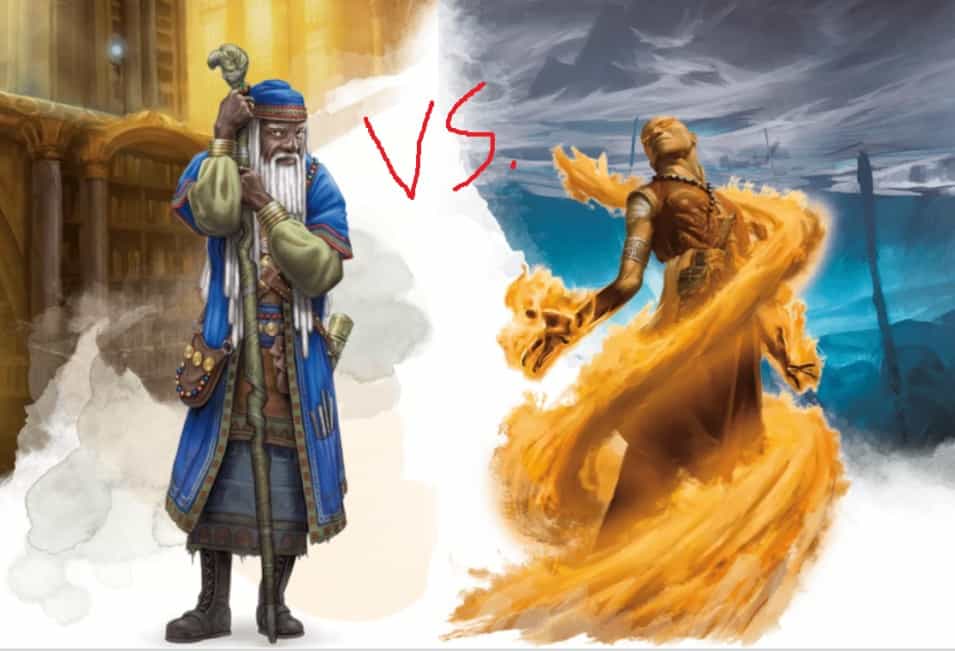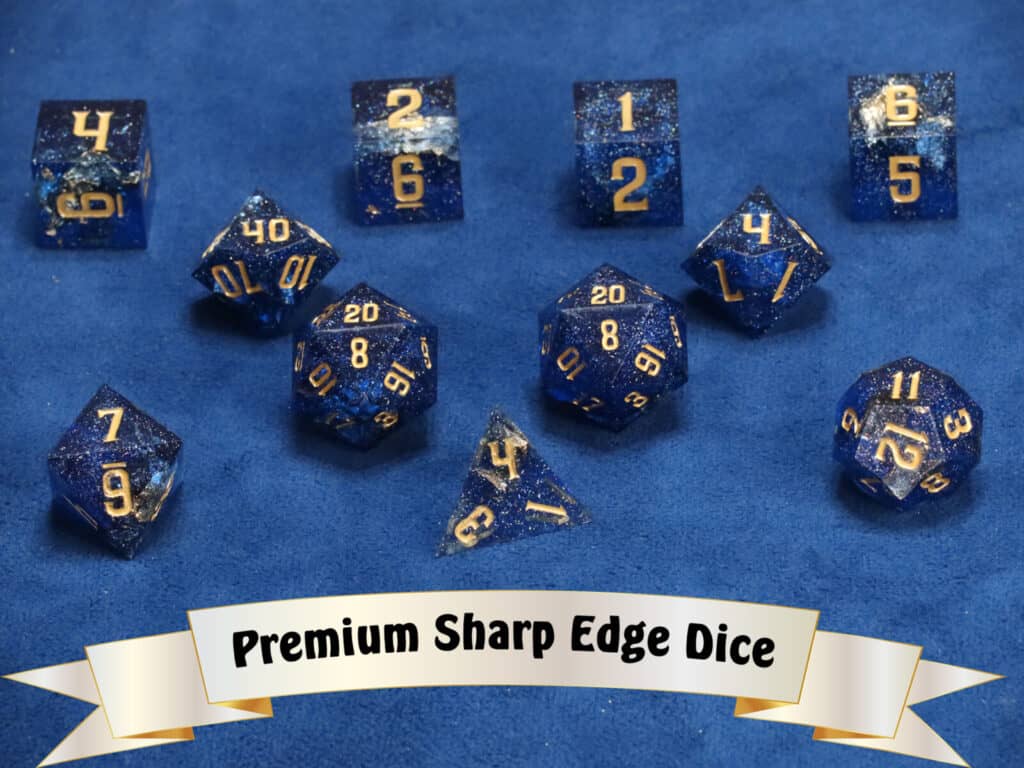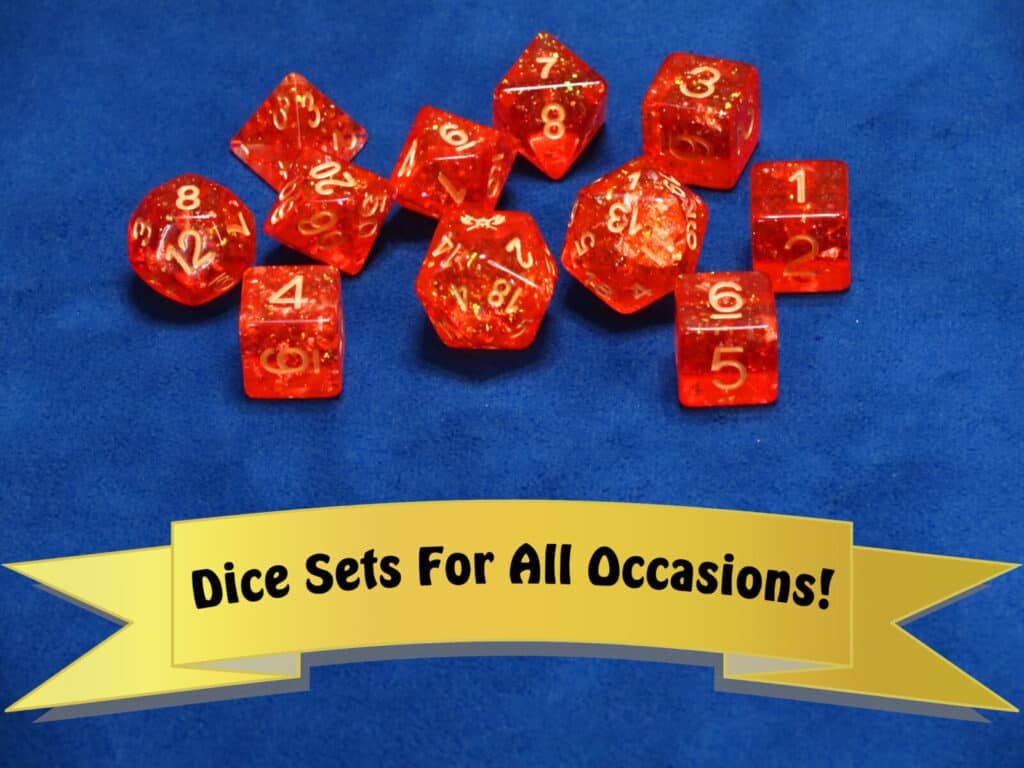Although there are technically multiple casting classes in Dungeons & Dragons, the first two that come to mind for most people are the wizard and the sorcerer. So with apologies to the warlock, cleric, and the best class of them all (bard, duh), let’s jump into one of the common first questions new players have jumping into the world of magic in 5E: sorcerer or wizard?

Generally speaking in 5th Edition Dungeons & Dragons Sorcerer is the better option for a “jack of all trades” casting class thanks to ease of use and sorcery points, while wizards tend to really excel with niche specialty builds that are super overpowered in one specific way but require experience with the system to pull off.
Things can vary based on the sub-class, but generally if you just want to be a general spellcaster, throw some fireballs, or “just use magic” as a newer player then sorcerer is the better way to go. Wizards, though, especially if you study and get to really know the system well enough to plan long-term, give some potential to really mess with a game.
So sorcerer vs. wizard: which is better in 5E? Let’s find out.

Sorcerer vs. Wizard 5th Edition: Which Casting Class Is Better?
In this case there is no bad class. No beast master ranger, no obvious disadvantage that restricts play style (RAGE!), no obvious falling behind late game in some campaigns sprinting all the way to level 20 (fighter, low magic campaigns). Both of these are really excellent classes that can do a lot of thing.
Magic opens doors, yo.
So the best way to tackle this is to first look at what each casting class does really, really well. With this information you’ll be able to look at each and decide which playing style best suits you.
Or the character you possibly already have in mind.
The Case for Sorcerer in 5E
Ah, the sorcerer. The natural talent who can just do magic because they’re just that charming and charismatic.
What makes the sorcerer a great class to play?
Reason #1: Simplicity
The first good case for sorcerer, especially for beginning players or players who are playing a magic class for the first time, is that it is much simpler to play than wizard.
A sorcerer has a large list of spells to pick from, you pick, and that’s it. You have your set number of spells you can cast, no need to get a magic book, transcribe them, search out new spells, carefully plan out your route based on your specialty and school of magic.
You don’t need to pick and choose which spells are set to go that day. As sorcerer you know what you know and that’s it.
Nope. Just pick the spell list and go.
Reason #2: Versatile In-Battle Mechanics
Sorcery points are amazing. The higher you level up, the more you get, and sorcery points let sorcerers do a lot of things.
- Spend sorcery points to recover a used spell slot (one more fireball!)
- Use metamagic to mold your magic with careful spell (i.e. your fireball hits enemies and parts around your allies)
- Use metamagic to double the distance/range of your spell
- Use metamagic to reroll damage dice you don’t like
- Twin your spell. One fireball becomes two.
- Make it subtle. If they don’t see you cast, they can’t counterspell you.
There are several more but the point is that with sorcery points you can do all kinds of things in-battle or in-game that are 1) Freaking cool and 2) very adaptable.
Wizards are insane if they have time to properly prepare. Sorcerers get to improv based on the situation.
Reason #3: Shift Around Spells
On top of all the things mentioned about metamagic, and the other things metamagic allows that I didn’t, a sorcerer can use sorcery points to shift spells around. Need another fireball but don’t have enough points?
Sorcery points not only can be converted to spells, but a sorcerer can dissolve spells into sorcery points. Get rid of a level 2 or a couple level 1 spells and use those points to get those higher spell slots back!
Reason #4: More Freedom with Role Playing
Wizards have to study. They have to study hard, generally in a school or under tutelage of someone. That’s the backstory. Granted, there are many many awesome ways to add flavor text to that and make the story your own but in some way you’re a bit roped in.
Sorcerers know magic…because. Just because.
Maybe it’s dragon blood. Maybe it’s because dormant Fey blood woke up. Maybe it’s just freaking because.
In other words, you have a lot of freedom in choosing character traits and backstory. Since your main stat for casting is charisma, you have opportunities that don’t make nearly as much sense with a wizard.
The dumb jock who knows magic. The sorcerer who wishes he was a bard. The hillbilly who can’t read but can cast spells the wizard is still studying.
Or maybe something way more normal…but you at least have those options.
Reason #5: More Diverse & Intriguing Sub-Classes
I would make the argument that with the wizard sub-classes are absolutely interesting, but they’re more like professions or job titles. Indicating the overall direction that character must go.
With sorcerers there are many different backgrounds that can be a lot of fun. Starting with the base Player’s Handbook and then moving on to the new options that Xanathar’s, Tasha’s, and others also brought to the table.
The chaos sorcerer can make any session more interesting (read this if you don’t believe me). Or maybe you come from a long line of dragons. While the storm sorcery is Meh as far as abilities or mechanics…it really sounds cool AF. The aesthetics are great.
The dichotomy of Divine Soul or Shadow gives tons of room for really interesting sorcerer characters and that’s before getting to the weird ones like Clockwork Origin or Aberrant Mind.
At least in my eyes, the role playing and story possibilities are just more fun with the sorcerer.
Also make sure to check our in-depth guide for best feats for sorcerers to get some strong build ideas.

The Case for Wizard in 5E
The wizard is the spellcaster who has used discipline, study, and an incredible intellect to master the secrets of the arcane. While we’ve already stalked about what the sorcerer brings to the table, let’s now jump to the wizard and why that might be the the right pick for your next campaign.
What are the advantages of a wizard over a sorcerer?
#1: Much larger spell selection
Many of the classic spells are shared by both classes, but wizards do have a much larger spell selection, especially once you get past the lower levels up to mid-level spells and upper level spells. Wizards simply can learn more magic. They also have more specialty spells for each school of study.
This is an undeniable advantage to being the bookworms of the magic caster world.
#2: Study Pays Off
The spellbook. While on one hand you could argue it’s a disadvantage – and in one way or some situations it is – there are also major advantages to having a spellbook.
For one, they can know every spell that they can learn by transcribing it into their book. So even if they have only 3 spell slots they could know 10 or 15 spells at that level. Only 3 can be prepared at a time, but that does mean a much larger tool box of spellers than the sorcerer.
If the wizard has an idea of what’s coming up, that means he or she can tailor their spells for the challenges that are up ahead.
Every scroll a wizard finds, as long as the wizard class can cast that spell, that spell can be moved into the spellbook.
So while the spellbook does have its restrictions – it also allows much more flexibility for any situation and the ability to have a much larger pool of spells to pull from.
#3: Free Ritual Casting
Wizards get free access to ritual casting. As long as they know the spell, have a scroll, or transcribed the spell in their book they have the ability to ritual cast any spell that’s allowed with. That can be a very big deal during a short rest or while setting up a camp.
That’s even more spells the wizard can use for the party’s greater good.
#4: Arcane Traditions = Awesome Specialties
Sorcerers are general spellcasters. You can try to make a sorcerer a support caster or a battlemage, or a jack of all trades, trying that careful balance between utility spells you might need and blasting spells. Arcane traditions allow a wizard to specialize in an incredibly powerful way. Aer you going to be an illusionist whose magic is so strong you can literally bring illusions to life (or fade reality into non-existence)?
Or are you going to be a divination wizard who, with the pick up of one feat, can change 7 or more dice rolls a day, thus molding the reality of the game world to your will?
Arcane traditions don’t have much overlap meaning when you go hard in one direction you can do some really amazing and incredible things with your specialized wizard. Be a (good?) necromancer, master magic so much that no one can tell when you’re wielding influence over them or your concentration can’t be broken.
While sorcery points allow the sorcerer to be the much more versatile class in actual battle, a low level wizard has so many options in how they can build to create characters that look nothing like each other.
It’s kind of weird describing versatility through specialization but that’s exactly what the wizard class has to offer.
Take a look at this article for just a glimpse into the many builds you can work with wizard.
#5: Slightly Faster Powering Up at Higher Levels
This could also be called the Sorcerous Origins vs. Arcane Traditions battle. Both have really cool features at low and high levels, but as you go into high level campaigns you will notice that the wizard generally gets some of their best Arcane Traditions features at 14th level vs. Sorcerous Origins getting their peak at 18th.
Since you are building wizards with a specific purpose early on (more than any other class you definitely need to plan out how you’re going to build and plan them) you have the ability to really ramp up the power at higher levels.
Make sure to check out our best feats for wizards to further maximize your build.
5E Sorcerer Vs. Wizard: Unqualified Experts Season 2 Debate!
Special Spellcasting Considerations
One of the biggest things to consider when making this choice is whether or not the DM is going to allow the optional stats rule that was introduced with Tasha’s Guide to Everything or not. If they are, then you don’t need to think about race at all when building a character because you can
In Summary you can think of the choice between casters in 5E this way:
If you want to just have all spells available at all time, be able to mess with your spells in battle, or be a character without a high bookishness or intellect then you want to go with sorcerer.
The summary case for playing sorcerer in 5E
And for wizard?
If you want a spell caster who specializes in a certain area, you are okay with planning and learning the ins and outs of the magic system, and you like to tailor your spells to the day, the campaign, or the situation then you want to go with wizard.
The summary case for playing wizard in 5E
Thanks for reading!
In Conclusion
This isn’t one of those situations where one class or sub-class is clearly superior to the other (any ranger vs. beast master, cough, cough). There are very good reasons to pick wizard just as there are good reasons to pick sorcerer instead. There isn’t even a clear winner when min-maxing because the various abilities of both allow you powerful characters in very different ways.
In one type of campaign the versatility of the sorcerer might carry the day while in another a very specifically and carefully crafted specialist wizard gives the DM fits while saving the party time and time again.
Both classes are extremely fun to play and offer plenty of options for players looking for that perfect casting character.
Try them both out – chances are pretty good you might get hooked to both!
Other DnD Articles You May Enjoy
- Passive Perception 5E
- Keen Mind 5E Feat Guide
- Alert 5E Feat Guide
- Best Utility Spells 5E
- Spell Sniper Feat
- War Caster Feat


Proud to embrace the locally created moniker of “Corrupt Overlord” from one of the all time great Lords of Waterdeep runs, Shane is one member of the Assorted Meeples crew and will be hard at work creating awesome content for the website. He is a long-time player of board games, one time semi-professional poker player, and tends to run to the quirky or RPG side of things when it comes to playing video games. He loves tabletop roleplaying systems like Dungeons & Dragons, Pathfinder, Werewolf, Fate, and others, and not only has been a player but has run games as DM for years. You can find his other work in publications like Level Skip or Hobby Lark.
